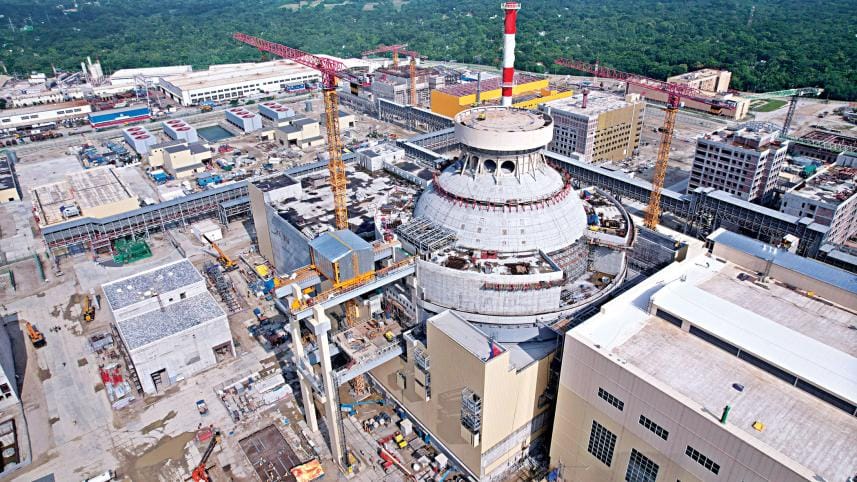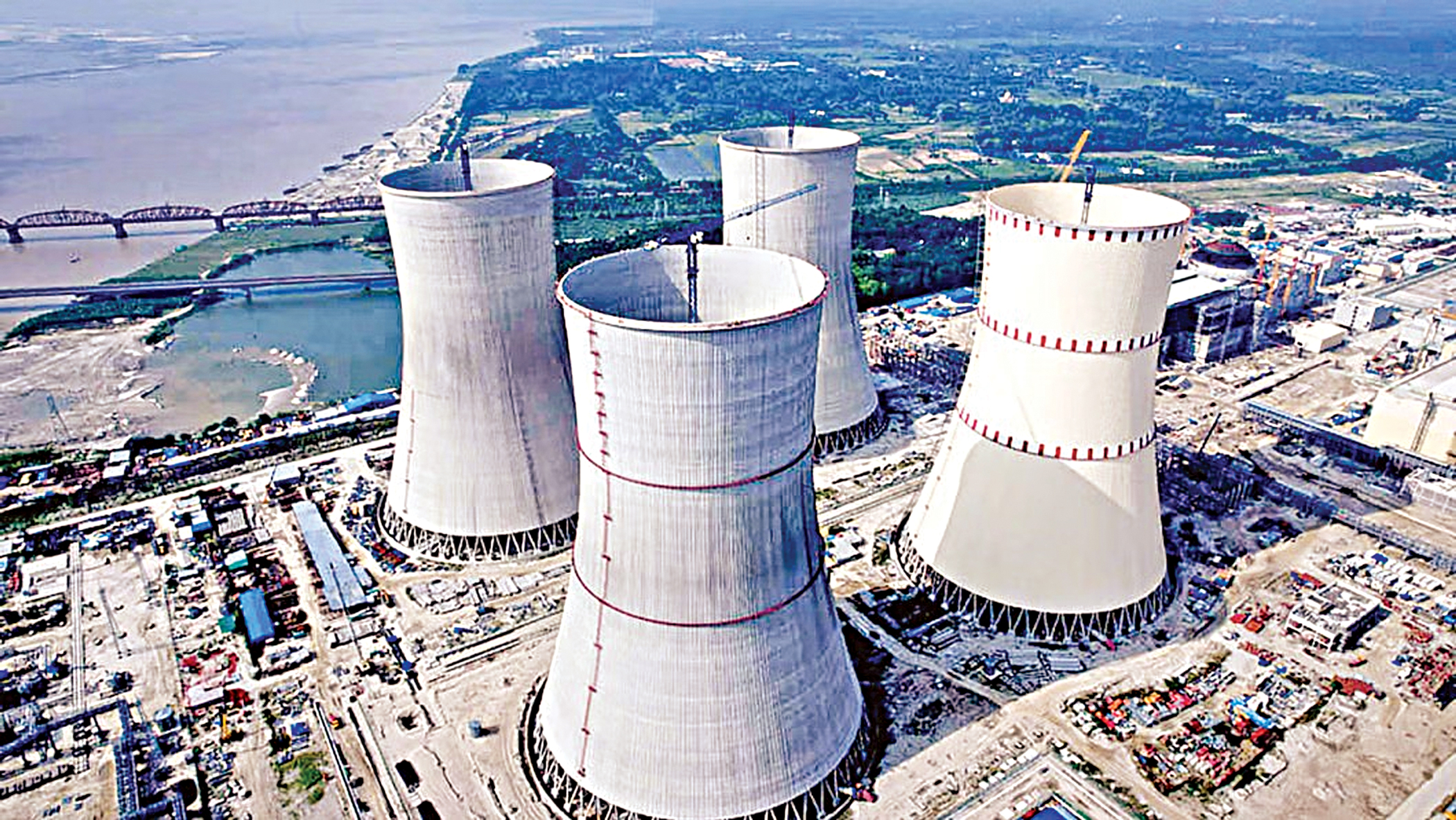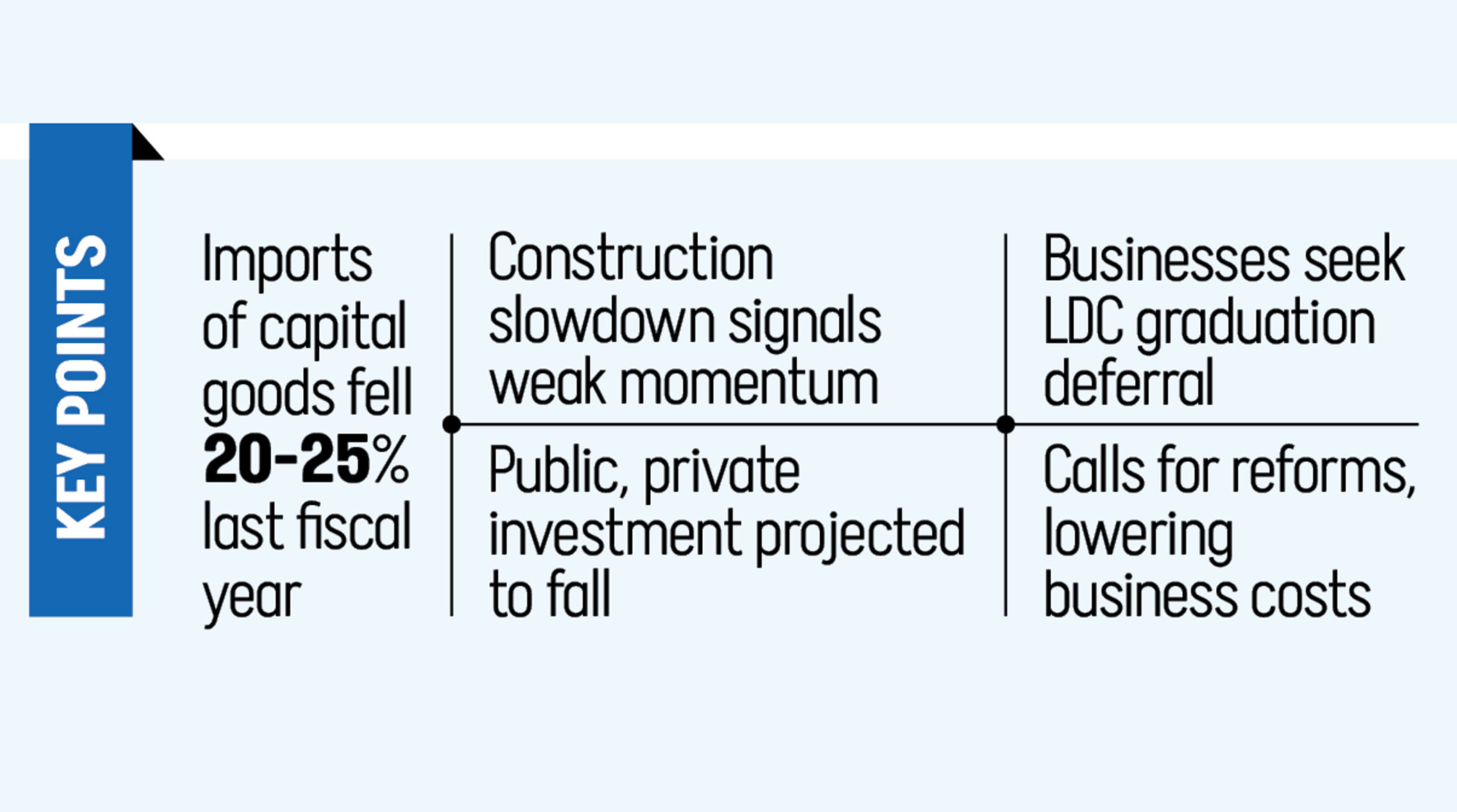UN agency asks Rooppur to improve safety before opening

The International Atomic Energy Agency (IAEA) has recommended improvements in fire prevention and response, operational supervision, and equipment preservation at the Rooppur Nuclear Power Plant (RNPP) ahead of its commercial launch of the first unit.
The recommendations followed a Pre-Operational Safety Review Team (Pre-OSART) mission from August 10 to 27, conducted at the request of the Bangladesh government to assess safety at Unit-1.
In a statement yesterday, the IAEA said: "The team identified areas of good practice to be shared with the nuclear industry globally, notably the Rooppur Training Centre's integration of a state-of-the-art simulator to train refuelling machine operations."
The mission advised further strengthening fire safety measures to ensure effective prevention and response, improving supervision and operational standards, and reinforcing equipment preservation during commissioning to protect systems and components.
The Pre-OSART team noted that the plant staff members are knowledgeable, professional, and committed to enhancing operational safety and reliability.
It said that technical exchanges were described as fruitful, with experience and knowledge shared on achieving excellence in operational safety.
"The transition from commissioning to operations is one of the most important stages for the safe operation of a nuclear power plant," said Simon Morgan, senior nuclear safety officer at the IAEA.
"The team observed a commitment from plant management to ensure all prerequisites are in place for this transition, in accordance with national and IAEA standards," said the IAEA official.
The 14-member IAEA team, comprising experts from Europe, Asia, and the United States, observed commissioning activities, held discussions with staff, and reviewed technical documents.
Md Kabir Hossain, project director of the RNPP, said Bangladesh remains committed to maintaining the highest safety standards and values IAEA peer reviews as an important tool for self-assessment.
Located in Pabna on the banks of the Padma River, the RNPP is the country's first nuclear power facility. Owned by the Bangladesh Atomic Energy Commission (BAEC) and operated by Nuclear Power Plant Company Bangladesh Limited (NPCBL), it consists of two VVER-1200 reactors with a combined capacity of 2,400 megawatts.
The IAEA, an intergovernmental organisation within the United Nations system, promotes the safe, secure, and peaceful use of nuclear technologies. It was established in 1957, in the aftermath of World War II and the early nuclear age, to ensure that nuclear energy is not only used for weapons but also for beneficial purposes such as electricity generation, medicine, agriculture, and scientific research.
While the IAEA provides oversight, it does not "approve" plants. Instead, it ensures safety practices are aligned with global standards.
The BAEC has asked relevant authorities to address the issues raised by the IAEA and submit a report to finalise the start-up schedule for Unit 1, which is expected within a week. Construction of Unit-1 began in November 2017, followed by Unit-2 in July 2018.
An earlier IAEA mission in March identified 17 areas requiring improvement, many of which have since been addressed. Unit-1 is expected to begin operation by the end of this year, although the exact date has not been finalised.
Fresh fuel loading at Unit 1 is scheduled for early November, marking the final countdown to commissioning Bangladesh's first nuclear power facility. Once fuel is loaded, it will take 45-50 days to bring the plant online, with full production expected after approximately 11 months.



 For all latest news, follow The Daily Star's Google News channel.
For all latest news, follow The Daily Star's Google News channel. 

Comments